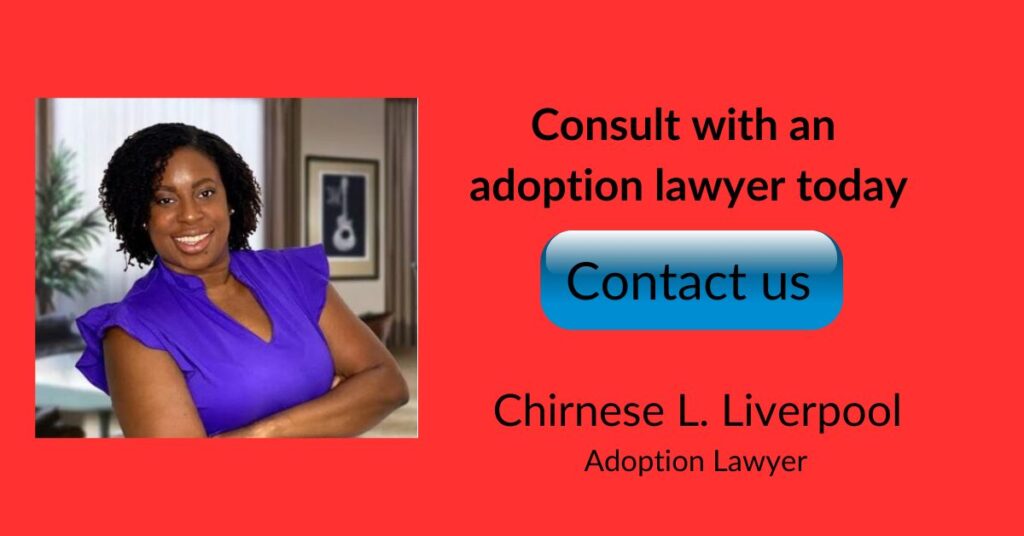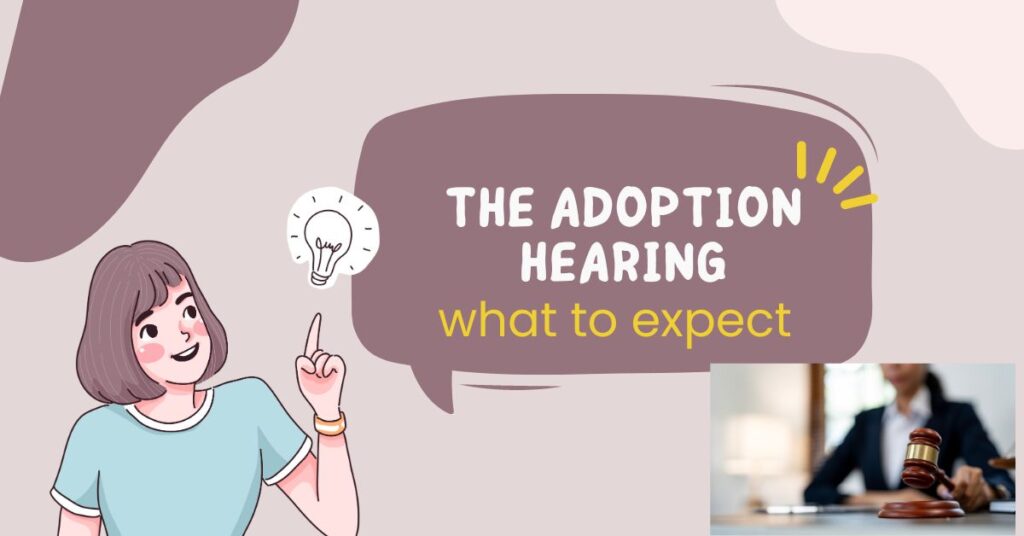Prefer to watch video? We’ve got you covered:
The adoption hearing is a significant step in the adoption process in California. Each county and courthouse may have a different procedure so I will attempt to make a generalization of what to expect. Keep in mind that this varies greatly from county to county.
During the hearing, a judge reviews the adoption petition, considers the best interests of the child, and makes a decision regarding the adoption. Here are some key points to consider regarding the adoption hearing:
1. Scheduling the Hearing: Once the adoption petition has been filed with the court and all necessary paperwork and requirements have been completed, the court will schedule an adoption hearing. The timing of the hearing can vary depending on the court’s docket and the complexity of the case.
2. Notice to Interested Parties: Before the adoption hearing, notice must be given to interested parties, including the biological parents, legal guardians, and any other individuals who have a legal right or claim to the child. The purpose of the notice is to inform them about the adoption proceedings and provide an opportunity for them to participate or contest the adoption if they choose to do so. I have created a video regarding serving notice on the appropriate parties that you may be interested in – if so, you can view this video at your leisure.
3. Attendance at the Hearing: The prospective adoptive parents, the child and their legal representatives typically attend the adoption hearing. Interested parties, such as the biological parents or legal guardians, may also be present if they wish to participate.
4. Presentation of the Case: During the adoption hearing, the judge will review the adoption petition, the home study report, and any other relevant documents. The adoptive parents or their attorney may present evidence, such as testimony or supporting documentation, to demonstrate that adoption is in the best interests of the child.
5. Child’s Best Interests: The judge’s primary consideration in an adoption hearing is the best interests of the child. They will assess factors such as the child’s emotional and physical well-being, the stability and suitability of the adoptive home, and the nature of the relationship between the child and the prospective adoptive parents.
6. Judicial Decision: After considering all the evidence and arguments presented during the hearing, the judge will make a decision regarding the adoption. If the judge determines that the adoption is in the child’s best interests, they will issue an adoption order, granting legal parental rights to the adoptive parents.
7. Finalizing the Adoption: Once the adoption order is issued, the adoption is considered finalized. The adoptive parents will receive a new birth certificate for the child with their names listed as the legal parents. The child will now have the same legal rights and protections as if they were born to the adoptive parents.
It is important to consult with an adoption attorney or seek guidance from an adoption agency in California to ensure that you are prepared for the adoption hearing. They can provide guidance on what to expect, help you gather necessary documents and evidence, and represent your interests during the hearing. If you are interested in hiring an adoption lawyer, we ask that you contact the law offices of Chirnese L. Liverpool at (818) 714-2200 today.


